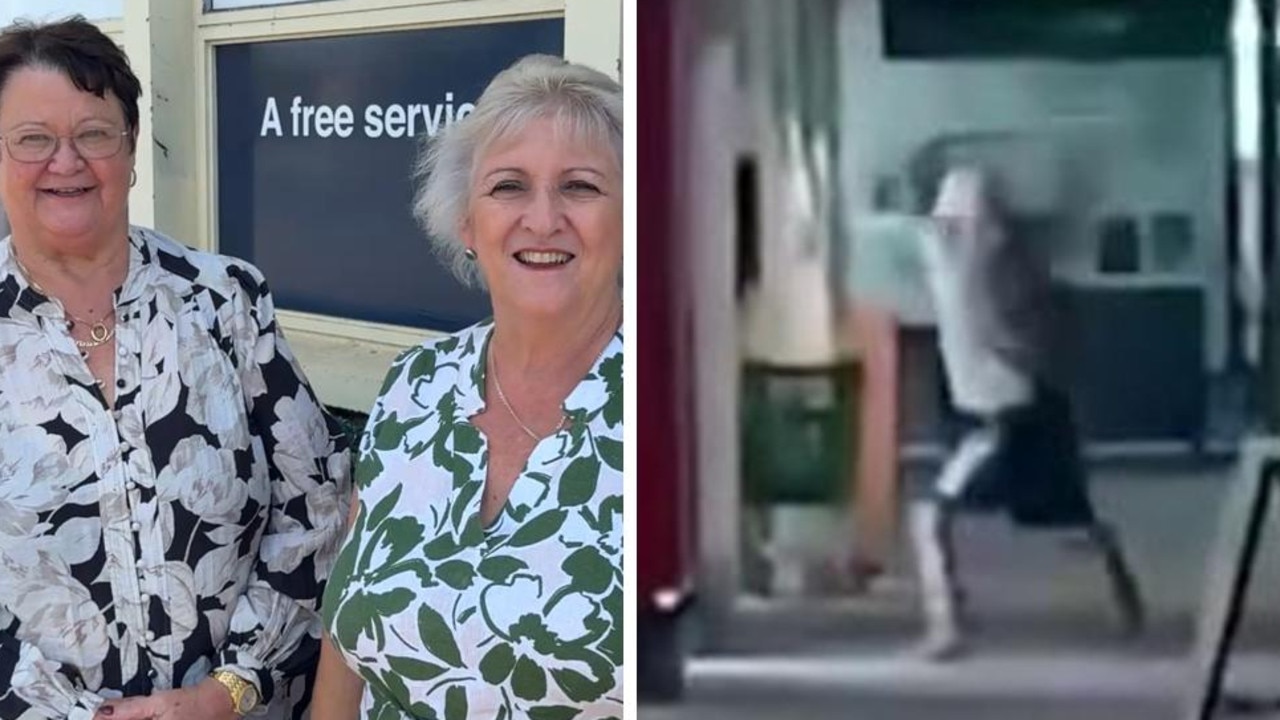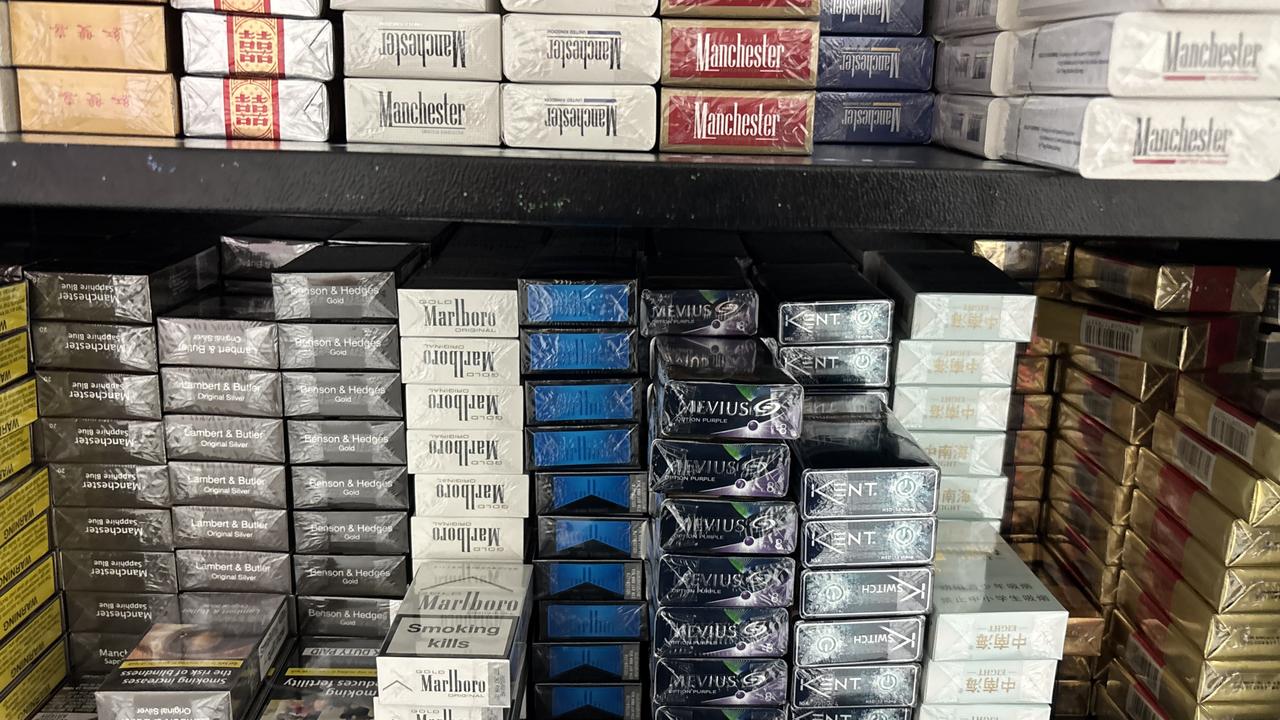Mackay’s Cameron Upholsterers closes after 48 years
Sitting opposite an infamous bikie hangout the ‘round house’, an unassuming shed was once part of a thriving industrial area. But a business built when motor cars were brand new is coming to an end after 48 years.
Business
Don't miss out on the headlines from Business. Followed categories will be added to My News.
Upholsterer Richard Cameron retires as the last man standing in what is now an increasingly bygone era.
“I came in a young man and I’m going out an old man,” he said while sitting at a sewing machine in an almost empty workshop in Cremorne.
His late father Donald, who did an apprenticeship in the trade after World War II, started up Cameron Upholsterers and Trimmers in 1974.
He left the profession to “follow the good money” building the first railway to Goonyella from Hay Point in the 1960s but returned and taught his son Richard the ropes.
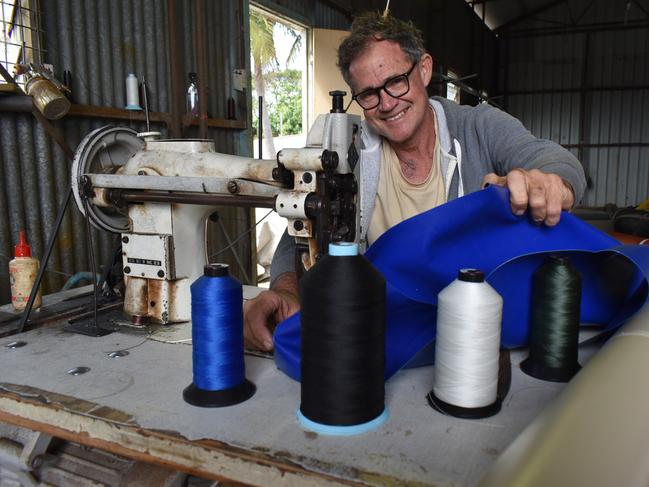
Mr Cameron walked into his father’s business at age 27 and leaves at age 60 with four children and the dream of heading north to enjoy retirement.
Sitting on the site of a former dance hall, and opposite the infamous bikie hangout the “round house”, the unassuming shed was once part of a thriving industrial area.
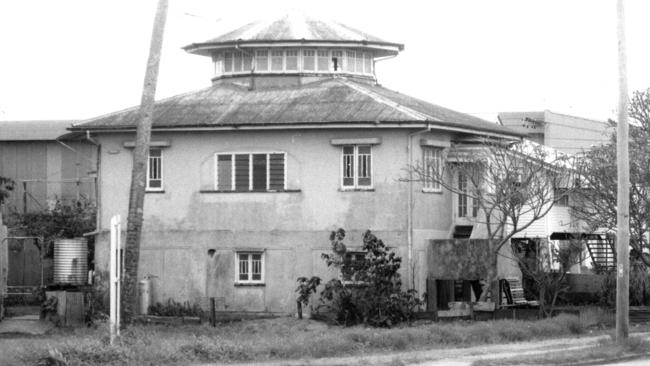
Mr Cameron been told more than once his workshop, in a flood prone area next to the Pioneer River, is really part of the river bed.
There are few businesses left now and Mr Cameron is pragmatic about leaving it all behind.
“You can’t go backwards,” he said.
Upholstery was never something he was passionate about but when people ask what he would rather have done with his life, he hasn’t an answer.
“I envy people who love their job,” he said
“I never really loved this job, it’s been a means to an end.
“But is the grass greener?”
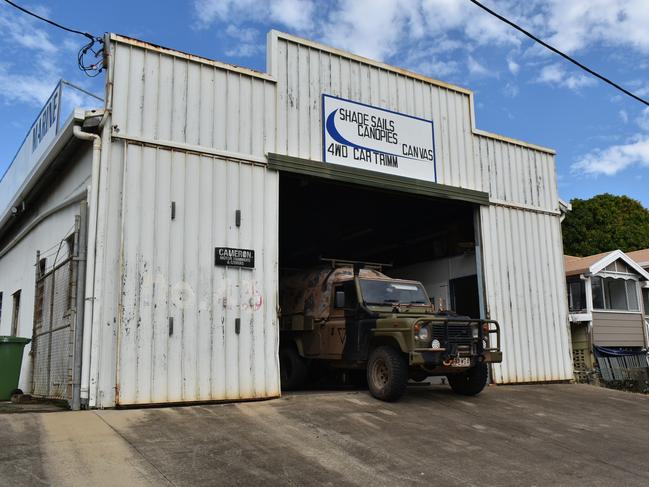
When his father got into the trade after the war, motor trimming was somewhat prestigious as most of Mackay was still riding bicycles.
“In Mackay after the war, he said things had to get going again, so it was starting to boom,” he said.
“He said when he was a kid, because he was a local boy, he had guys coming looking for him wanting to give him apprenticeships, that’s how much they wanted to get things going.
“So he tried his hand at apprentice carpentry, even boat building, and then fixing radios.
“His best mate was an apprentice motor trimmer and said ‘I wish I had your job’.
“In those days, you had crystal sets, where you played around with radios yourself, and his best mate used to dabble in that.
“He wished he had my old man’s job and my old man couldn’t care less, it was just a job, he’d tried that many apprenticeships.
“So they saw each other’s bosses and they swapped apprenticeships only six months into it.
“They both stayed at it. His best mate went on to fixing TVs and that sort of stuff.
“After the war when motor cars came around, it wasn’t an elite thing as such but no one had cars. Everyone rode pushbikes.
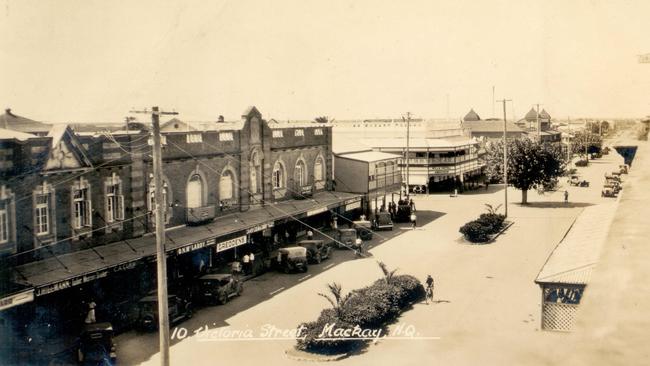
“So to say ‘I’m working on a motor car, I’m a motor trimmer’, they felt pretty special back then.
“You were working on the modern thing of the day.
“Even when I was a kid, you could go up the main street and there were bicycle racks in the middle of town, both sides of the road, everyone rode pushbikes.
“There would be walls of bikes in Mackay because no one had a car, only the richer people did.
“It was a simpler time.
“When my dad was first married, he didn’t have a car. He and mum had bikes with seats on the back for my two older brothers.”
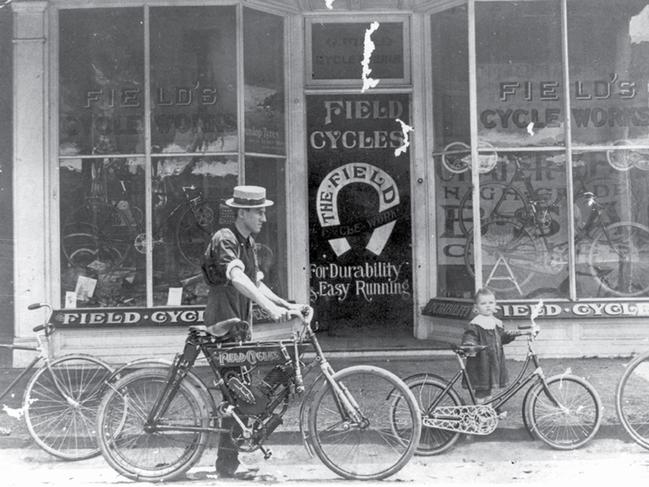
Mr Cameron’s father Donald died last year at age 92.
He spoke in the eulogy about how far technology had come.
“He was born 1929 on a cane farm all cut by hand,” he said.
“He told me he had vivid memories of his father with draught horses and a plough.
“He said he didn’t come to town until he was 3 or 4 on a horse and cart from Balnagowan.
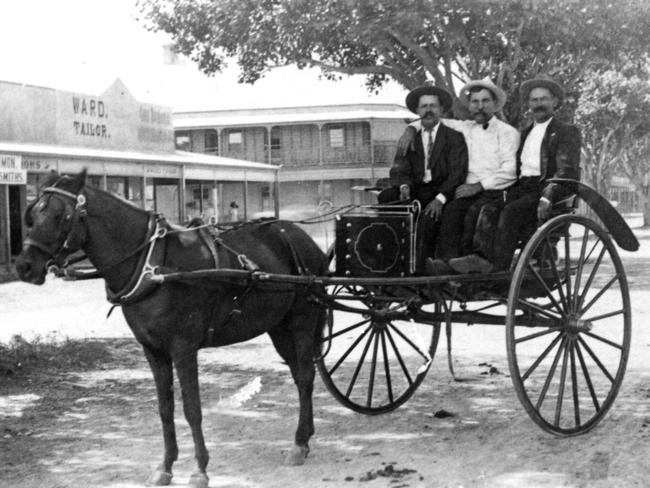
“Horses and carts date back to Jesus time so it wasn’t that long ago we were in the dark ages so to speak, in my father’s lifetime anyway.
“You see so many changes, it’s pretty amazing.”
And yet, Mr Cameron said, his trade had barely benefited from advancements in technology.
Though the trade had altered substantially in his 33-year career, the principles of his daily job had not changed.
“This trade really hasn’t changed since the horse and buggy days,” he said.
“It’s had no benefits from modern technology.
“Like a plumber has all his fittings made up at Bunnings. Where they once cut tin strips and would solder it, it’s pre-done now.
“We still have to cut it out, mark it and sew it, no matter the product.
“The only thing I can think of is the air compressor and when I started out we had tacks and a tack hammer before a staple came along.
“And a gun to spray glue with instead of putting it onto a brush but we haven’t advanced very far.
“So it’s still hands on, there are no shortcuts.”
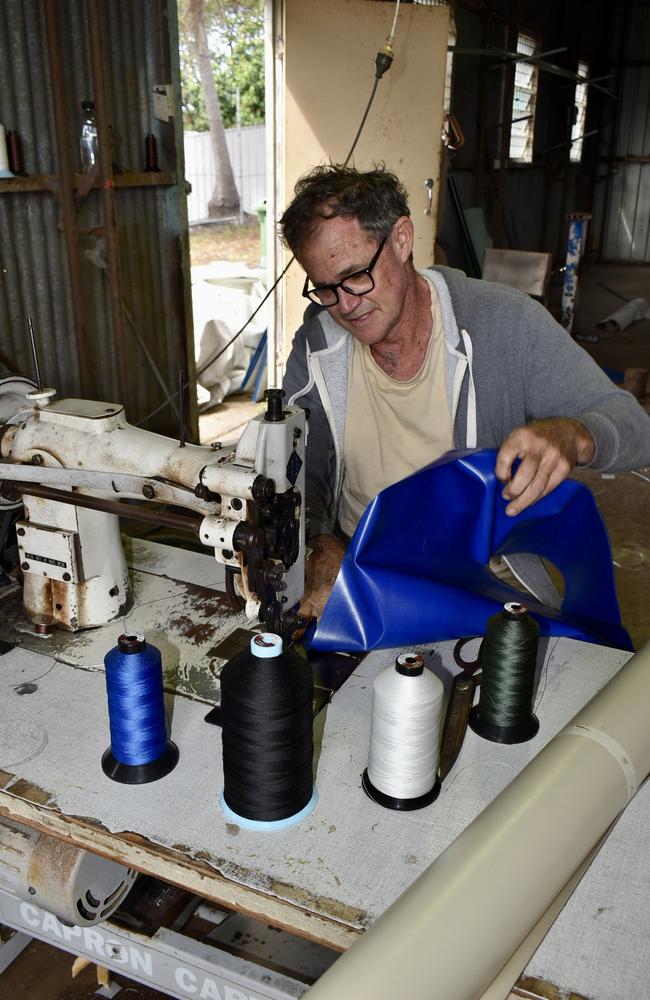
What has changed dramatically is the kind of upholstery work Mr Cameron has done over the years.
“We are officially called a motor body trimmer, for the body of a car,” he said.
“We’re a very old trade, like blacksmiths we go back to horse days.
“We were called coach and body trimmers so the body of a stage coach.
“Around World War II they changed as motor cars came out and we became motor body trimmers instead of coach body trimmers.
“But that’s changing too.
“I got out of motor cars in recent times, and now do a lot of shade sails, PVC work, annexes for caravans and I do a lot of mine-related stuff,” he said pointing to conveyor belt scrim and rubber on the ground.
“But you adapt.
“Cars now are a throwaway commodity, you’re not meant to work on them.
“For me to do a car now, pull something out of a car, you’ve just about got to be an auto electrician.
“I’m always worried about setting something off like an airbag so a lot of new cars are non-serviceable products.”
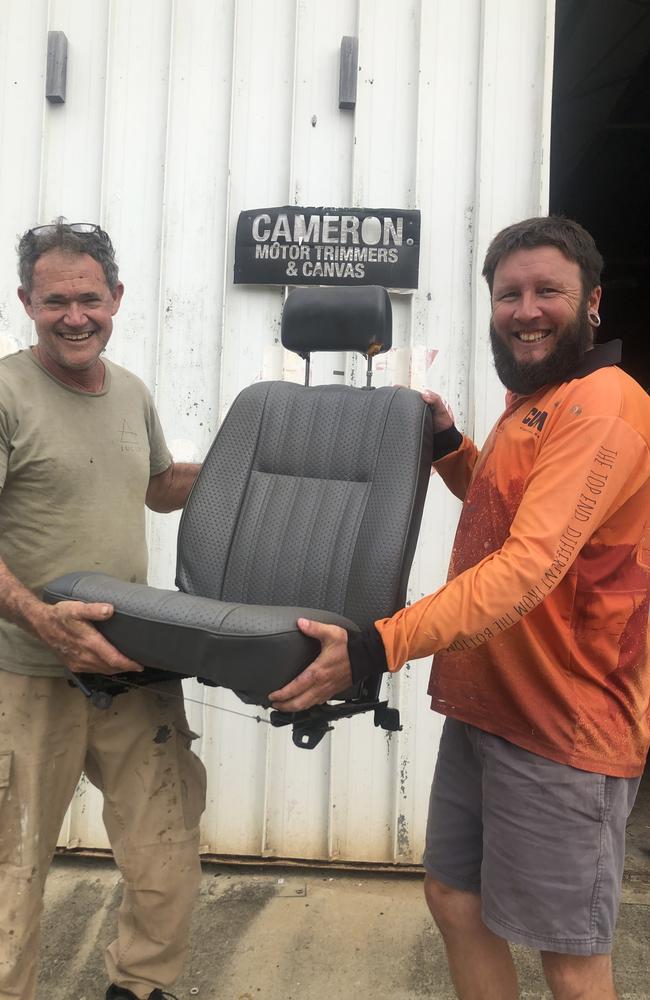
But Mr Cameron says it’s also people’s attitudes that have changed and people just expect things at the pace of “a McDonald’s drive-through now”.
“They think I have stuff custom made on the shelves, ready to go,” he said.
“Have you got a tonneau cover for my ute I just purchased? I have to say ‘I’ve got to hand fit it like I’m making a suit fit your shape. You bring the car in and I’ve got to peg it out, mark it and chalk it and pin it together’.
“There’s an attitude of wanting it now.
“I’ve literally got to pull it out of the car, unpick it, sew it, pull the seat cover off the seat.
“But some of these people probably don’t know milk comes from a cow. They live in their own world.
“There’s a lot of other guys in the trade who’ve recently pulled out, people don’t appreciate what work goes into it.”
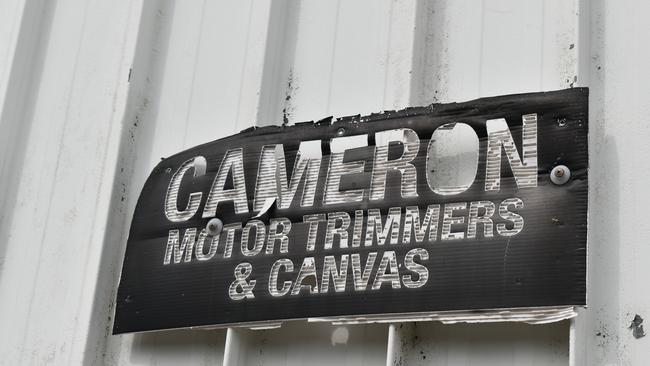
Mr Cameron said he just adapted to what the market wanted, noting shade sails were “never heard of in the late 80s”.
“You’ve got to learn the angles and the stretch for those instead of a car seat,” he said.
“It still involves a sewing machine but it’s very different.
“Years ago, I would do a full retrim on a car.
“Someone would bring up a Jaguar or an old two-door Monaro and you would do the whole lot – the doors, carpets, roof.
“You’d get great satisfaction from the customer’s reaction when it was finished.
“But for me it was a job, I got used to it.
“What I’m going to miss is the people who come here. The customers.
“Just happy people. People who come and say hello to me and you might have something in common and strike up a great conversation.”
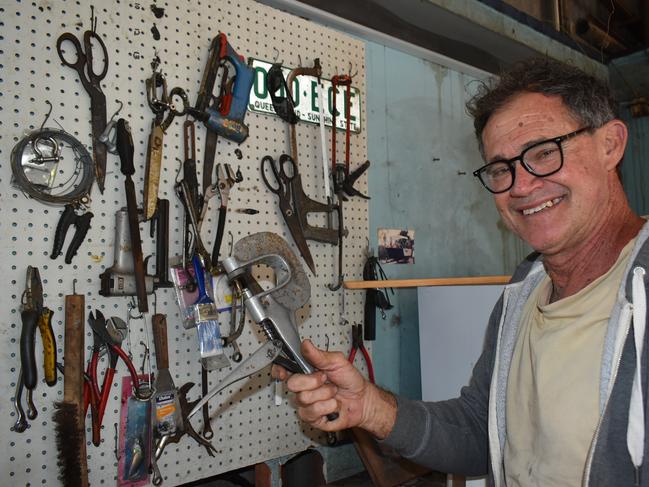
In retirement, Mr Cameron says he will still do “a little bit for select people” but he has a long-held personal dream he wants to fulfil.
“I’ve got a love affair with Cape York,” he said wistfully.
“I’ve been going up there since the early 80s. There’s just something in the air up there.
“We’ll go to places where there’s an isolated beach and you don’t see anyone ever, just remote, I love it.
“Debbie and I did a honeymoon trip in 1992 and we went for a few months.
“You get into a rhythm after a while, it becomes a way of life, we just wanted to keep doing it.
“We didn’t have a caravan back then, just had our Land Rover with a boat on top.
“It was a bit of work setting up camp but it was great and we were a lot younger then.”
This time the Camerons plan to take the caravan but a more permanent move could be “on the cards”.
“Once I get past Proserpine, I’m a happy man,” he said.
“We had a failed attempt at it actually
“We purchased a house in Cooktown about 20 years ago
“We were all set to move but on account of the kids, we made the decision to stay.
“I realised they were more important than my dreams, we had schooling and ambitions for them so we didn’t go.”
The Camerons — who live on a property at The Leap with an orchid — have four grown-up kids – Domanii, 29, Harrison, 27, Morgan, 25 and Flinn, 22.
The eldest is a journalist living in Brisbane, the youngest a nurse who has just moved back to Mackay from Mt Isa and two boys in the middle in the mining industry also still in their home city.
When they were younger, Debbie would bring them into the workshop at 45 Cremorne St and help out with the family business including bookwork.
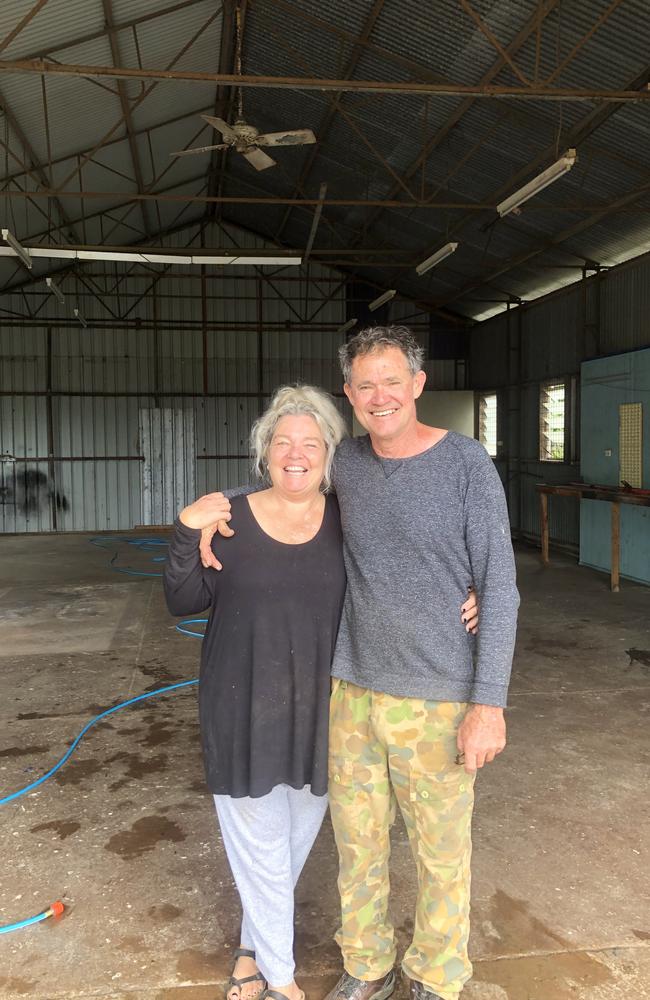
Richard remembers Domanii playing in the mango tree out the back, hers and Harrison’s footprints still in the concrete out the back.
“I have fond memories falling asleep on the foam rubber Dad would use for jobs as a kid,” Domanii said.
“I can distinctly remember its smell and the smell of the glue he would use for hoodlinings.
“There was a stick Pop and Grandma used, and then Dad, for measuring jobs that we would use to measure how tall we were as kids against the wall.
“The ABC was always playing on the radio, I don’t think the channel ever changed, and there were always lots of tea bags and coffee.”
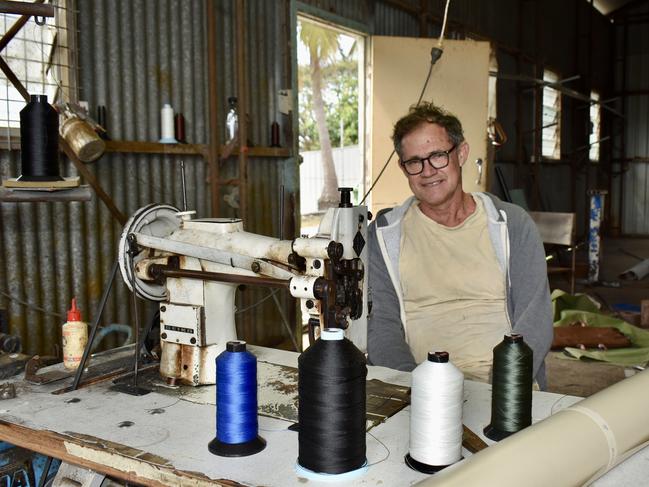
Mr Cameron too remembers his mum Valda, 87, helping out in the family business and the smell of Bear’s contact cement from the early days is one he will never forget either.
Holding up a measuring tape stretched to 100cm in the workshop, Mr Cameron says the first 60cm is history for him and the average life span is somewhere around the 85cm mark.
“There’s only a small window to do something meaningful in retirement, maybe 10 years,” he said.
“As it is, I need a hip replacement, I’ve got arthritis, I’ve had a melanoma taken out of my arm last year. But I’m still OK.
“I say to people ‘I could work a couple more years to get more money but what price do you put on those two years?’ because you can’t get them back.”
He’s sad “to a degree” that his father’s legacy ends with him but he's excited for what the future holds.
“I’m not going to dwell on it, everything comes to an end.”




